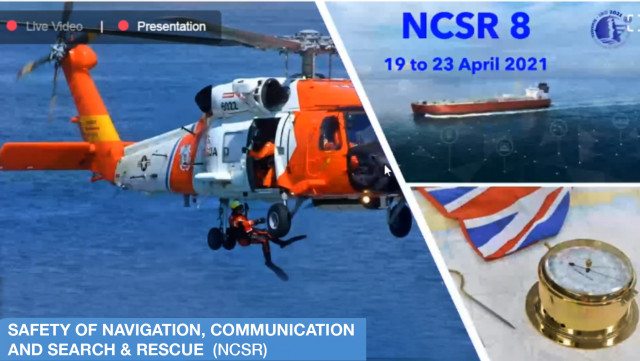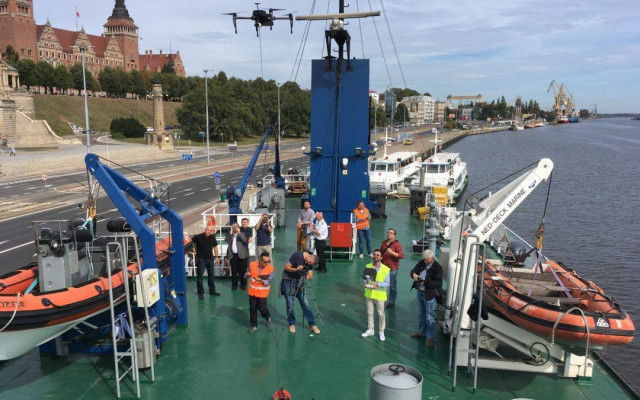In recent months, our staff at the Faculty of Navigation have been extensively engaged, not only in teaching and research but also in several international projects, mainly related to improving the safety of navigation.

The time has also come for summing up and reporting on recently completed projects and research grants. In addition, numerous ongoing consultations take place, where experts from the Faculty of Navigation provide opinions, analyse, and carry out simulations for Polish investment projects in marine traffic engineering.
In early May 2021, another (online) meeting of the IMO Maritime Safety Committee (MSC) was held, and the issues of improving maritime and port safety were addressed. Current work within the MSC is focused on international regulations for the safe operation of Maritime Autonomous Surface Ships. A few more words about MASS later in this article.
The Sub-Committee on Navigation, Communications and Search and Rescue (NSCR) has been active since 2008. The Dean of the Faculty of Navigation, Paweł Zalewski, PhD Eng., Chief officer, MUS Professor takes part in its periodical meetings on behalf of MUS. The sub-committee deals with, among other things, the development of standards and guidelines for maritime navigation systems, assessment of shipping routes, the coordination of communication in order to prevent maritime accidents and if they happen – the implementation of procedures for a quick and effective arrangement of search and rescue operations.

These issues are part of a much broader concept of e-navigation, and a number of MUS researchers carry out long-term work on its development. Several projects in this field are managed by Prof. Lucjan Gucma, from the Department of Marine Traffic Engineering. Under Horizon 2020 programme, the EU's largest-ever research and innovation scheme, the PASSport project is being developed. It improves ports security by extending spatial monitoring using, for example, a drone fleet - which gathers up-to-date information about traffic and sea condition. Recently, the SARA project was completed, which was focused on a semi-automatic tethered drone data collection system used for the initial detection of small vessels and to support maritime Search and Rescue operations.
Activity within the International Maritime Organisation
Committees of the International Maritime Organization (IMO) were the area of intensive work for FoN experts.In early May 2021, another (online) meeting of the IMO Maritime Safety Committee (MSC) was held, and the issues of improving maritime and port safety were addressed. Current work within the MSC is focused on international regulations for the safe operation of Maritime Autonomous Surface Ships. A few more words about MASS later in this article.
The Sub-Committee on Navigation, Communications and Search and Rescue (NSCR) has been active since 2008. The Dean of the Faculty of Navigation, Paweł Zalewski, PhD Eng., Chief officer, MUS Professor takes part in its periodical meetings on behalf of MUS. The sub-committee deals with, among other things, the development of standards and guidelines for maritime navigation systems, assessment of shipping routes, the coordination of communication in order to prevent maritime accidents and if they happen – the implementation of procedures for a quick and effective arrangement of search and rescue operations.
E-navigation expands rapidly
MUS also continues successful cooperation with the German Aerospace Center (Deutsches Zentrum für Luft- und Raumfahrt - DLR), the University of Ljubljana (Slovenia) and - in general - with the European Space Agency in the development of data authentication guidelines for the Galileo navigation system and its compatibility with other navigation systems (GPS, GLONASS, Beidou). This is a particularly urgent issue in the context of the massive development of navigation based on satellite data. In order to operate safely, marine vessels require a high degree of precision in positioning, with an error of less than 20cm. These problems were the focus of the recently completed MAGS project, widely described (in Polish) in the last issue of Akademickie Aktualności Morskie (Academic Maritime News). The conclusions of the MAGS project, as well as another project carried out at MUS in this field - EMPONA - are gradually being implemented in the IMO guidelines and standards for the display and processing of navigational data of PNT (Positioning, Navigation and Timing) system and GNSS (Global Navigation Satellite Systems).
These issues are part of a much broader concept of e-navigation, and a number of MUS researchers carry out long-term work on its development. Several projects in this field are managed by Prof. Lucjan Gucma, from the Department of Marine Traffic Engineering. Under Horizon 2020 programme, the EU's largest-ever research and innovation scheme, the PASSport project is being developed. It improves ports security by extending spatial monitoring using, for example, a drone fleet - which gathers up-to-date information about traffic and sea condition. Recently, the SARA project was completed, which was focused on a semi-automatic tethered drone data collection system used for the initial detection of small vessels and to support maritime Search and Rescue operations.
Autonomous Surface Ships still unregulated
European navigation and maritime traffic specialists are faced with the challenge of seeking legal standards and developing a range of regulations for autonomous vessels. The programme aimed at designing, constructing and testing this kind of ship, led by Prof. Tadeusz Szelangiewicz of the MUS Department of Naval Architecture and Shipbuilding, has been undertaken a few years ago. Such projects are also being developed in other countries such as Norway and China. Although research and testing are progressing, there is still a lack of precise regulatory approval of such boats and ships and rules for their insurance. International expert teams still work on the law codification in this area.Waiting for the end of the pandemic
In the meantime, secondary school leaving exams has been taken by many young people, who start to search for the best options in terms of their further education. Which university? Which course? These questions are repeated quite often. In the coming months, the Faculty of Navigation will warmly welcome the new students. Hopefully, they will be able to study in a standard, though post-covid, mode and enjoy the full range of opportunities to acquire knowledge at Maritime University and make the most of living student life in Szczecin.


